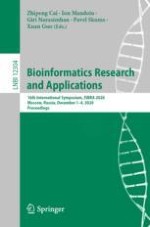2020 | OriginalPaper | Buchkapitel
Functional Evolutionary Modeling Exposes Overlooked Protein-Coding Genes Involved in Cancer
verfasst von : Nadav Brandes, Nathan Linial, Michal Linial
Erschienen in: Bioinformatics Research and Applications
Aktivieren Sie unsere intelligente Suche, um passende Fachinhalte oder Patente zu finden.
Wählen Sie Textabschnitte aus um mit Künstlicher Intelligenz passenden Patente zu finden. powered by
Markieren Sie Textabschnitte, um KI-gestützt weitere passende Inhalte zu finden. powered by
